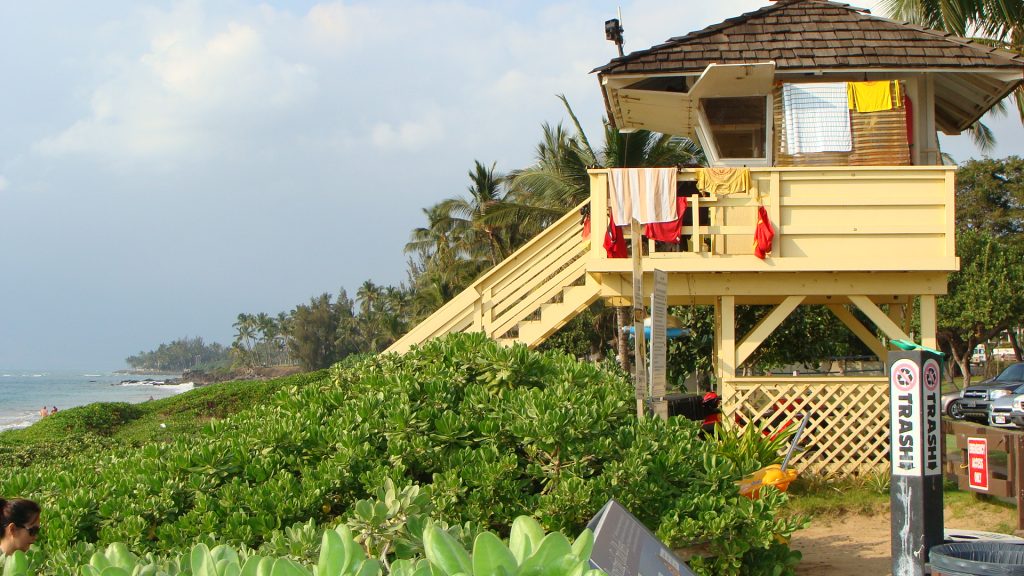New Ocean Safety Website Aims to Reduce Drownings in Hawai‘i

South Maui lifeguard tower. File photo by Wendy Osher.
Drowning continues to be one of the main causes of death in Hawai‘i. Ocean drowning is the fourth leading cause of injury related death in Hawai‘i, and by far the leading cause for visitors, with snorkeling the activity most frequently associated with visitor drowning, according to state officials.
Visitors comprise more than half (55%) of the victims of ocean drownings and suffer 81% of ocean related spinal cord injuries. There is also a general increasing trend of fatal ocean drownings among visitors.
The Hawai‘i Department of Healthʻs Emergency Medical Services and Injury Prevention System Branch, in collaboration with the Hawai‘i Drowning and Aquatic Injury Prevention Advisory Committee, has launched a new website to encourage residents and visitors to swim at beaches with lifeguards to prevent drownings or serious injury in the ocean.
The website, https://hioceansafety.com/ aims to decrease risk factors and increase “protective factors” for ocean goers, including being at a lifeguard beach. The new website contains a link to an existing Department of Health website that provides real-time information on ocean conditions at beaches with lifeguards statewide. That website can be found at http://hawaiibeachsafety.com/
“Choosing beaches with lifeguards who can respond quickly to those in the ocean is a matter of life and death. The sooner a person in distress in the ocean can get help, the better their chance of survival,” said Ralph Goto, co-chair of the Hawai‘i Drowning and Aquatic Injury Prevention Advisory Committee, which coordinates the website.
Data on ocean incidents can also be found on the website, including a list of beaches (some of which have become popular tourist destinations in recent years) with the highest frequency of spinal cord injuries.
“People who visit Hawai‘i may not realize that even small waves at our beaches can be strong enough to cause serious injury and even death,” added Gerald Kosaki, another committee co-chair, “Knowing what beaches to avoid and how to react when a wave is breaking on shore is critical.”
“Keeping everyone who goes to the ocean safe is a top priority. We realized that there was no online resource on ocean safety in Hawai‘i and that it would be valuable for residents and visitors to have a comprehensive website dedicated to providing everything from the interpretation of beach hazard signage to snorkeling tips and basic data about drowning and spinal cord injuries,” said Bridget Velasco, the Hawai‘i Department of Healthʻs drowning and spinal cord injury prevention coordinator. “As we continue to build up this website we hope that it will be a community resource for all things ocean safety.”
Information that is extracted from peer-reviewed studies that show good science will be used to inform website content, and as newly confirmed information is available, the website will be updated.
“We are studying factors that may contribute to the high representation of snorkeling as the most common activity among visitors who drown. Results of these studies will not be available for a few years, but as information is available, we will be certain to inform the public through the website,” Goto said.
The Hawai‘i Drowning and Aquatic Injury Prevention Advisory Committee was established in 2015 to bring together industry experts, including ocean safety professionals, visitor industry authorities, non-profit child swimming organizations, the US Coast Guard and other partners, to collaborate on drowning and water-related injury prevention in Hawai‘i.





_1768613517521.webp)

